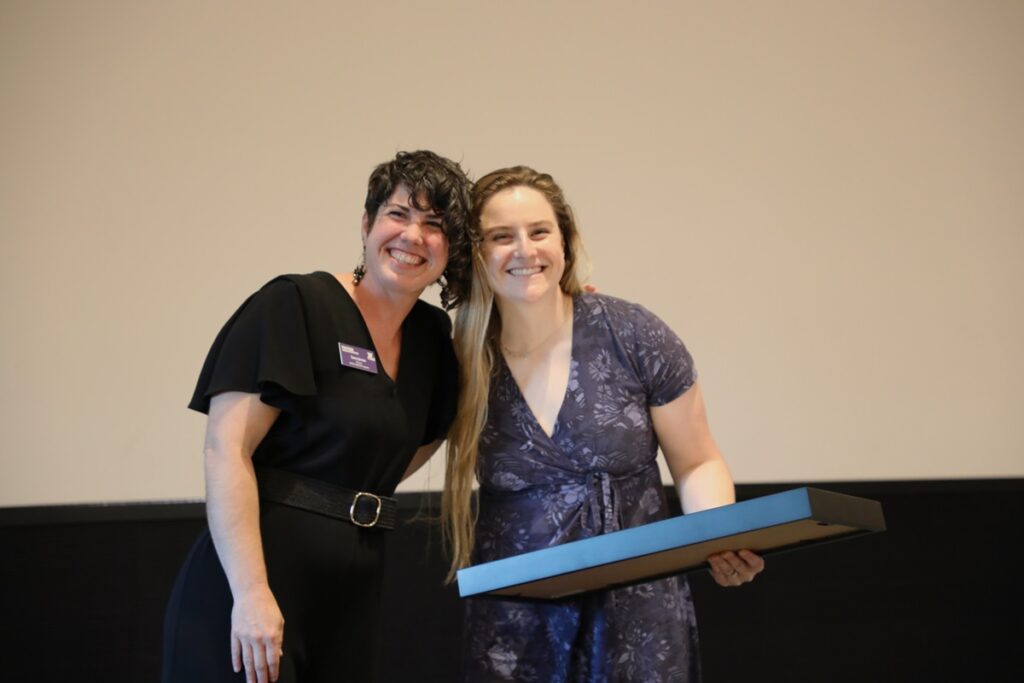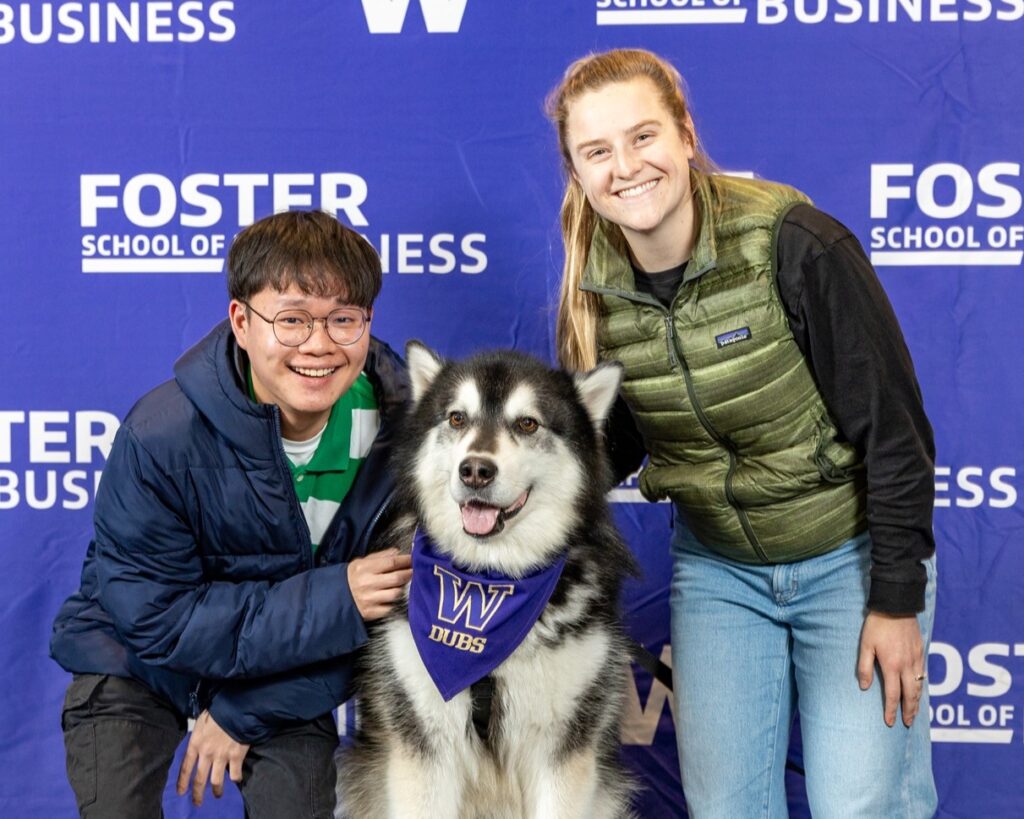MSBA Alum Advances Her Career with Foster Degree
Bridget Bills shares how Foster’s curriculum and networking sharpened her analytical skills and propelled her career at Brooks Running
Sharpening Skills
“I wanted to keep my knives sharp because data moves so fast and I didn’t want to fall behind,” says Bridget Bills (MSBA 2024) of joining the Master of Science in Business Analytics (MSBA) program at the Foster School of Business. Bills studied alongside her MSBA cohort while working as a full-time analyst at Seattle’s very own Brooks Running.
A working professional, she was looking to fill her knowledge gaps on data management, learn “how the business works,” and gain the skills to speak the language of analytics. Currently a Business Operations and Process Manager at Brooks Running, Bills shares how she benefited from the program and how it has impacted her career growth.

Filling Knowledge Gaps
After completing an undergraduate degree in Economics, Bills felt like she was missing core business skills. “I chose this Master of Science in Business Analytics program to help fill the knowledge gaps on topics like supply chain and data hierarchy. I liked that the program was more technical than most of the business degrees I’d seen.”
As a full-time professional, Bills was also drawn to the time efficiency of joining a 1-year degree program and the networking opportunities of being in a top-ranked program right in Seattle’s backyard.
“I now oversee operations, business management, and data systems for the Brooks apparel team,” Bills explained “I’m better at each of these functions because of my time at UW Foster. I have a wider set of tools at my disposal for tasks like forecasting, data visualization, and data structure/management between systems.
Since finishing her degree, Bills has become one of the most qualified analysts on her team, using data to solve problems, understand how long tasks will take, and make processes easier for her team.
Asked how the Foster MSBA program helped her become “the go-to data person,” Bills shared how having a coveted analytics background gave her the assurance she needed to step up to the plate. “Obtaining my degree definitely gave me the confidence to actively seek out adding systems components to my responsibilities.”
Bills credited classes like Data Visualization & Storytelling and Business Strategy to gaining the ability to say, “I’m educated on this topic. I know about this. There were so many terms I heard in class where the lightbulb went off – I’d been hearing these terms at work without fully knowing what they meant until now. Instead of knowing little pieces, I gained this overarching knowledge of how the business works.”

Maximizing Networking Opportunities
To get the most out of her experience, Bills tapped into the network of classmates, alumni, faculty, and industry leaders who surrounded her at the University of Washington. “Having access to industry leaders was one of the biggest highlights of being a UW Foster student. It was exciting to meet professionals from my industry and see a career pathway similar to mine.”
Bills, who arranged coffee meetups and Zoom calls with several guest speakers, emphasizes the importance of taking advantage of the opportunities in front of you: “When I first started my career, I knew I wanted to work with data but not in what capacity. So, when I was networking, I was reaching out to people in different data subsets to ask specific questions about what I might be interested in.”
When it comes to building up the courage to speak to these professionals, Bills shared that “it can be intimidating but you have to put yourself out there and ask questions to figure out what you’re looking for. Most people are very nice and casual and if you show a genuine interest in them and their work, they’re usually willing to speak with you. I’m not asking them for anything, I’m just curious and eager to learn more about them and their experience.”
“When you show a real interest in someone’s work, you have the chance to build a genuine connection within your field. And the more you practice having those conversations, the more natural it starts to feel.”
Click here to learn more about the Master of Science in Business Analytics program.
